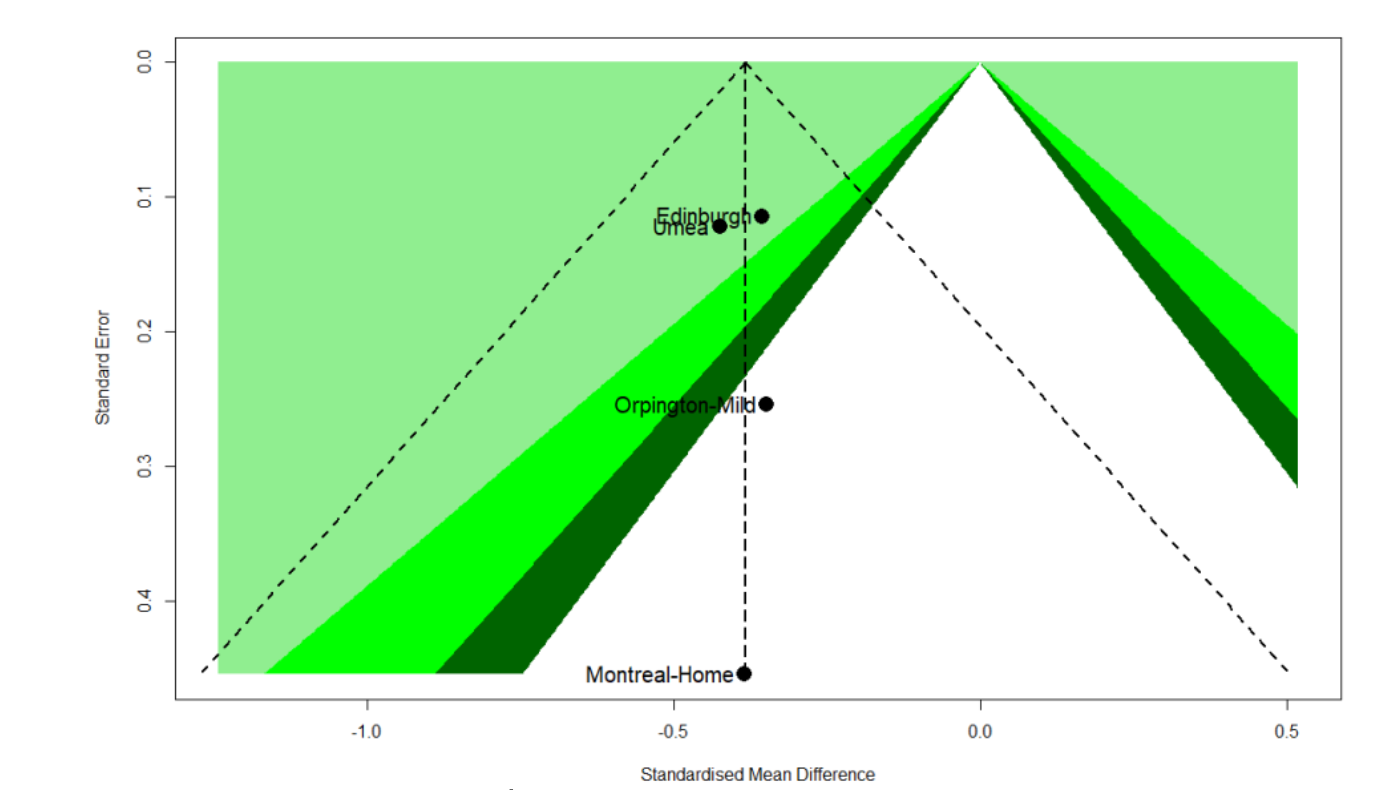An Application of R on Analyzing Meta-Analysis for Research: Health Science Context
Main Article Content
Abstract
There is an ever-increasing number of publications using meta-analyses, but Thai academics and Thai researchers still have very little use of the R program for meta-analysis in the health sciences research context, including teaching the use of R in statistical analysis for research. Therefore, in this research article, the objectives are 1. to synthesize documents for meta-analysis using the basic R program and 2) to suggest guidelines for researchers to conduct additional studies beyond meta-analysis basic.
The research results found that. 1. Basic meta-analysis had shown that R could perform basic meta-analysis no worse than any other program. This research article would divide the presentation of basic meta-analysis into 2 Parts. Part 1 introduced the concept of systematic literature review (Systematic Review), which consisted of 2 sub-parts as follows: Sub-part 1) discussed the application of PICO to clearly define research questions as a basis for selection. into the literature for meta-analysis next, and in the second sub-part was the application of PRISMA to explain the inclusion and exclusion of studies that would be used for meta-analysis next in the section Second, a meta-analysis using R program on relevant topics according to international principles was introduced. Starting from importing the dataset for further meta-analysis, the meta-analysis would display the analysis results in the form of text (Text Output), and analysis of various sub-statistics. Important factors required in reporting research results included the pooled effect size in the form of Common (Fixed) effect and Random effect, as well as Test of heterogeneity analysis. There was also a visual analysis of the Forest plot and Funnel plot related to Publication bias analysis.
2. The guidelines for researchers to conduct additional studies that were higher than basic meta-analysis was to be able to use the R program to conduct a meta-analysis that was comprehensive had a high standard and had many capabilities that may be higher than the program. For this reason, Thai academics and Thai researchers could use the R program to conduct meta-analyses and publish in world-leading journals, no different from international researchers who had used the R program. It was used in meta-analyses in the context of health sciences and published in world-class journals.
Article Details

This work is licensed under a Creative Commons Attribution-NonCommercial-NoDerivatives 4.0 International License.
All authors need to complete copyright transfer to Journal of Applied Informatics and Technology prior to publication. For more details click this link: https://ph01.tci-thaijo.org/index.php/jait/copyrightlicense
References
Balduzzi, S., Rücker, G., & Schwarzer, G. (2019). How to perform a meta-analysis with R: A practical tutorial. Evidence-Based Mental
Health. 22(4), 153-160. https://mentalhealth.bmj.com/content/22/4/153
Barker, T. H., Migliavaca, C. B., Stein, C., Colpani, V., Falavigna, M., Aromataris, E., & Munn, Z. (2021). Conducting proportional meta-analysis in different types of systematic reviews: A guide for synthesisers of evidence. BMC Medical Research Methodology. 21(1), 189. https://doi.org/10.1186/s12874-021-01381-z
Cajal, B., Jiménez, R., Gervilla, E., & Montaño, J. J. (2020). Doing a systematic review in health sciences. Clínica Y Salud. 31(2), 77–83. https://doi.org/10.5093/clysa2020a15
Chananet, C. (2010). Using R program for meta-analysis. The Journal of Applied Science. 9(1), 28-38. https://www.journal.sci.kmutnb.ac.th/journal_files/3_1_2553.pdf. [In Thai]
Cumpston, M. S., McKenzie, J. E., Thomas, J., & Brennan, S. E. (2021). The use of ‘PICO for synthesis’ and methods for synthesis without meta-analysis: Protocol for a survey of current practice in systematic reviews of health interventions. F1000Research. 9, 678. https://doi.org/10.12688/f1000research.24469.2
Dechpichai, P., Kongchareon, J., Suwanateep, N., Tuprakay, S. R., & Pongsopa, J. (2017). The pooled prevalence of allergic disease in Thai children: Meta-analysis. Advances Science. 17(2), 78-98. https://sci.bsru.ac.th/sciweb/e-magazine/17-2/chapter-7.pdf. [In Thai]
Durand, M.-A., Carpenter, L., Dolan, H., Bravo, P., Mann, M., Bunn, F., & Elwyn, G. (2014). Do interventions designed to support shared decision-making reduce health inequalities? A systematic review and meta-analysis. PLOS ONE. 9(4), e94670. https://doi.org/10.1371/journal.pone.0094670
Egger, M., Higgins, J. P. T., & Smith, G. D. (2022). Systematic Reviews in Health Research: Meta‐Analysis in Context. London : BMJ Book.
Gogtay, N. J. & Thatte, U. M. (2017). An introduction to meta-analysis. Journal of the Association of Physicians of India. 65, 78-85. https://www.japi.org/x2e464/an-introduction-to-meta-analysis
Harrer, M., Cuijpers, P., Furukawa, T.A., & Ebert, D.D. (2021). Doing meta-analysis with R: A hands-on guide. London : Chapman & Hall/CRC Press.
Hsu, C.-Y. & Lin, Y.-N. (2019). Meta-analyzability concerns in meta-analyses. Archives of Physical Medicine and Rehabilitation. 100(8), 1574–1577. https://doi.org/10.1016/j.apmr.2019.01.002
Linden, A. H., & Hönekopp, J. (2021). Heterogeneity of research results: A new perspective from which to assess and promote progress in psychological science. Perspectives on Psychological Science. 16(2), 358–376. https://doi.org/10.1177/1745691620964193
Littell, J. H., Corcoran, J., & Pillai, V. (2008). Systematic reviews and meta-analysis. USA : Oxford University Press.
McGuinness, L. A. (2019). robvis: An R package and web application for visualising risk-of-bias assessments. Retrieved 10 June 2023. Retrieved from https://github.com/mcguinlu/robvis.
Migliavaca, C. B., Stein, C., Colpani, V., Barker, T. H., Ziegelmann, P. K., Munn, Z., & Falavigna, M. (2022). Meta‐analysis of prevalence: I2 statistic and how to deal with heterogeneity. Research Synthesis Methods. 13(3), 363–367. https://doi.org/10.1002/jrsm.1547
O’rourke, K. (2007). An historical perspective on meta-analysis: Dealing quantitatively with varying study results. Journal of the Royal Society of Medicine. 100(12), 579–582. https://doi.org/10.1177/0141076807100012020
Page, M. J., et al. (2021). The PRISMA 2020 statement: An updated guideline for reporting systematic reviews. PLOS Medicine. 18(3), Article e1003583. https://doi.org/10.1371/journal.pmed.1003583
Spineli, L. M. & Pandis, N. (2020). Fixed-effect versus random-effects model in meta-regression analysis. Statistics and Research Design. 158(5), 770–772. https://doi.org/10.1016/j.ajodo.2020.07.016
Wickham, H & Bryan, J. (2023). Readxl: Read Excel Files. Retrieved 8 June 2023. Retrieved from https://readxl.tidyverse.org.






